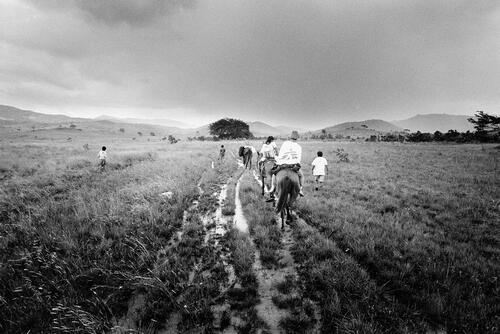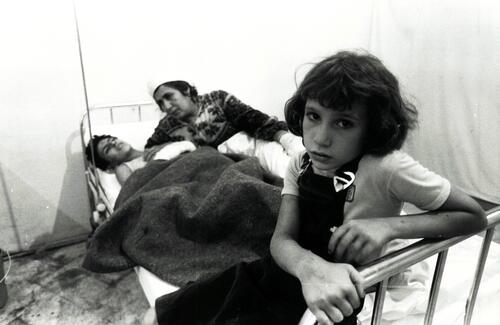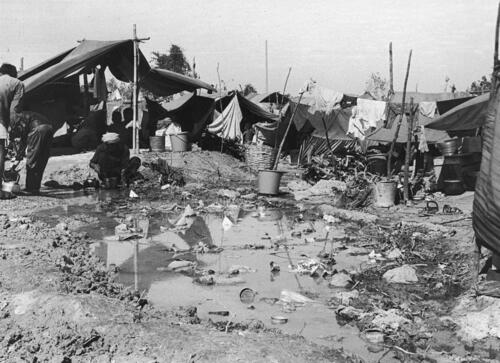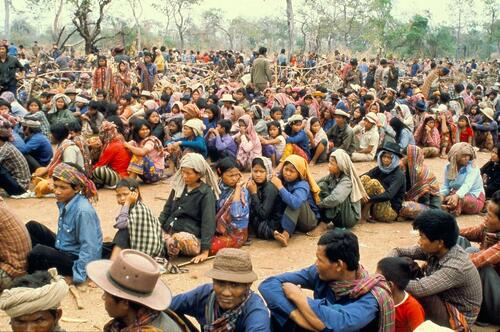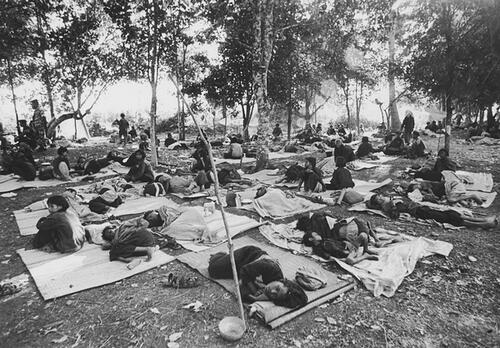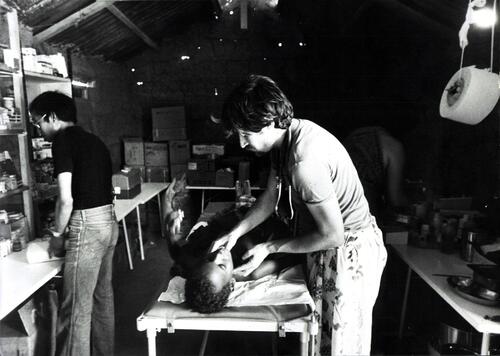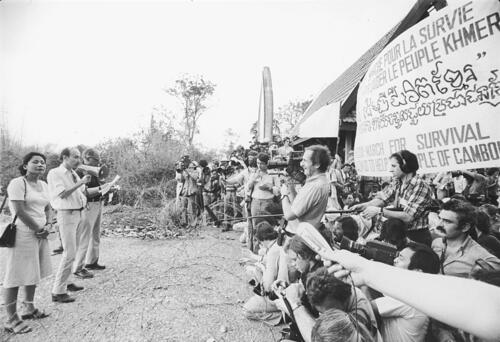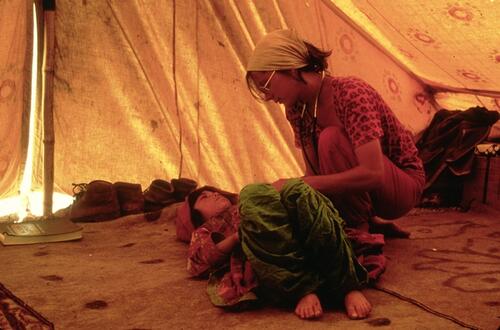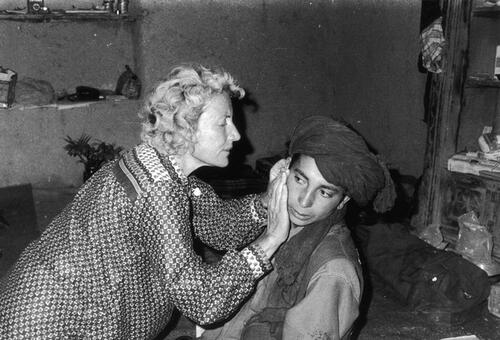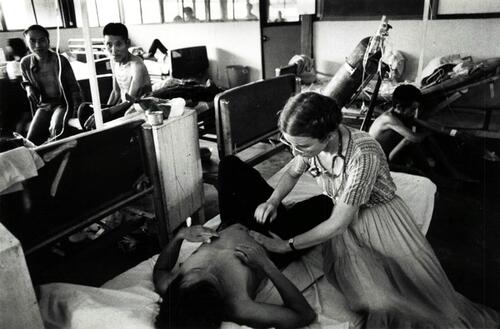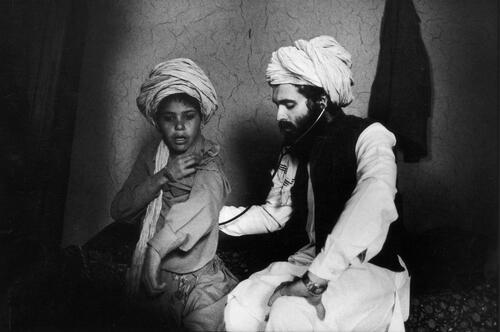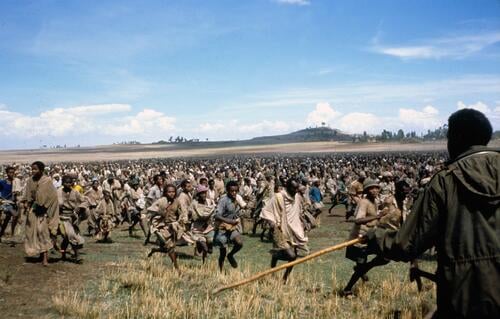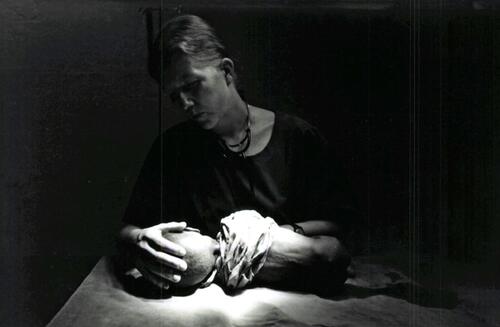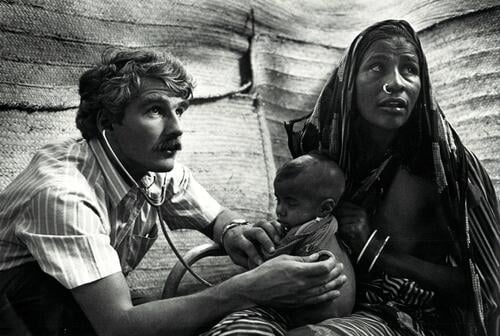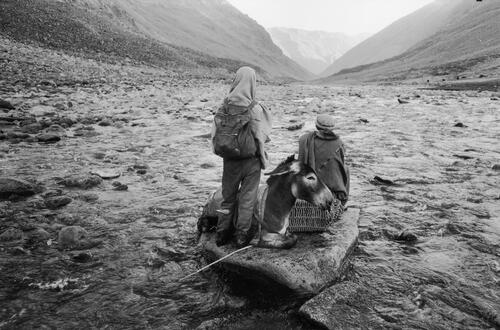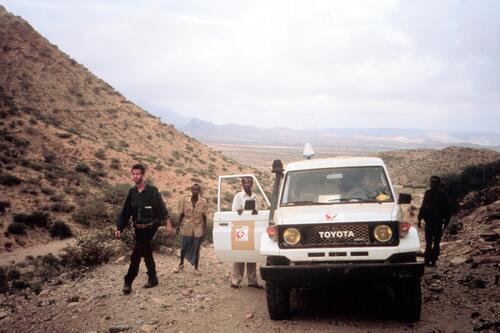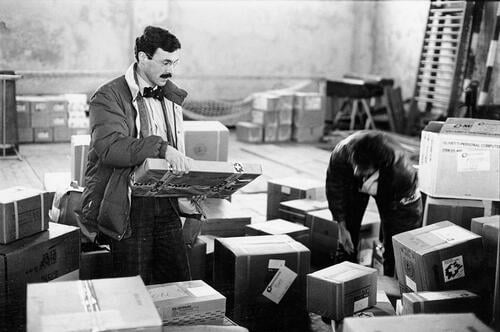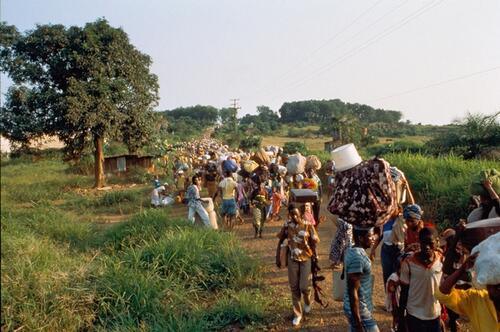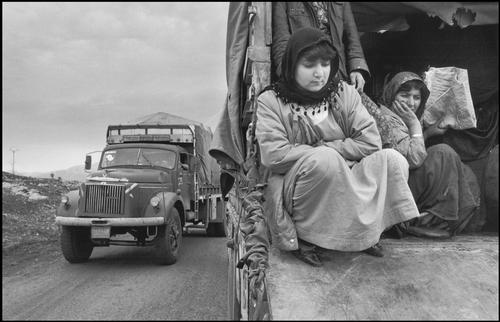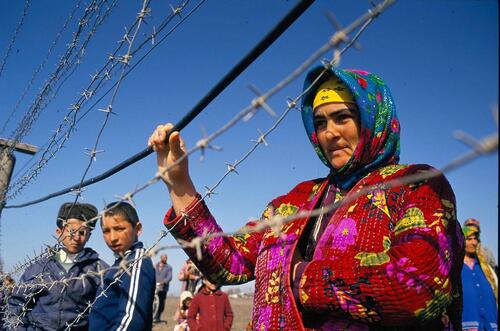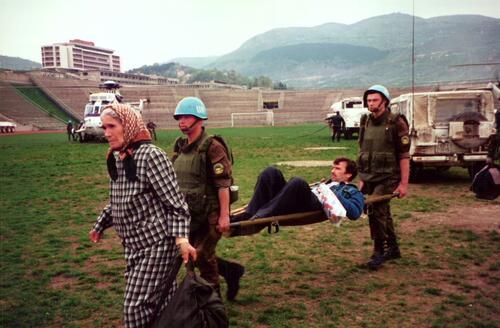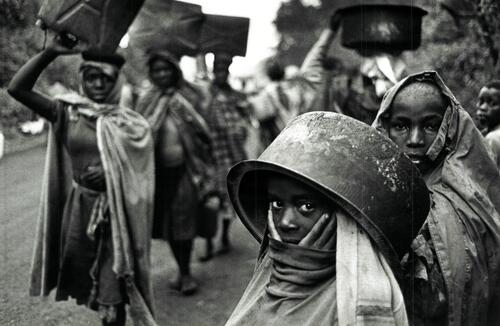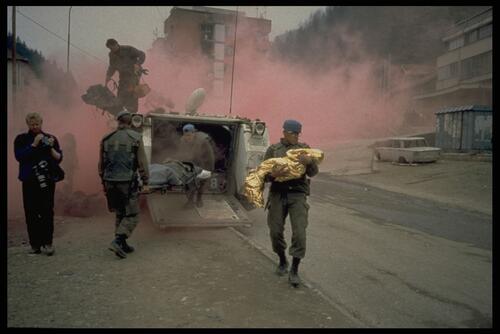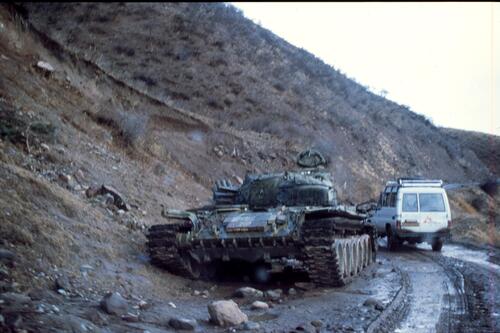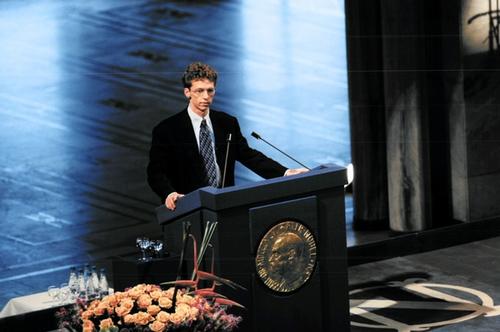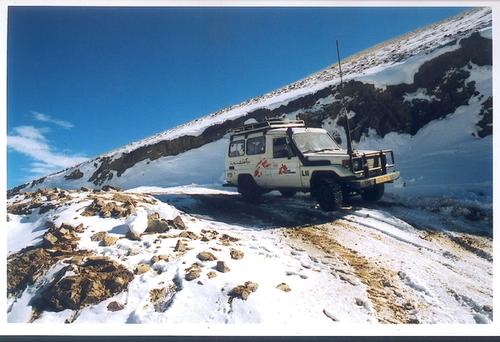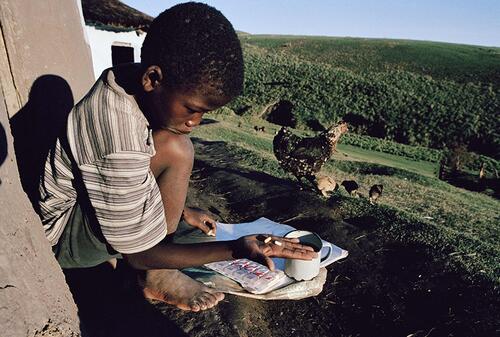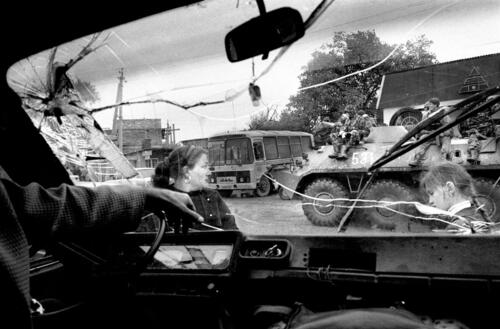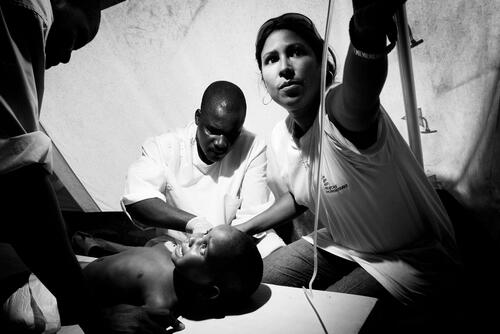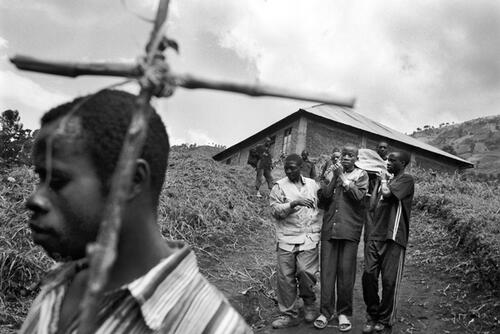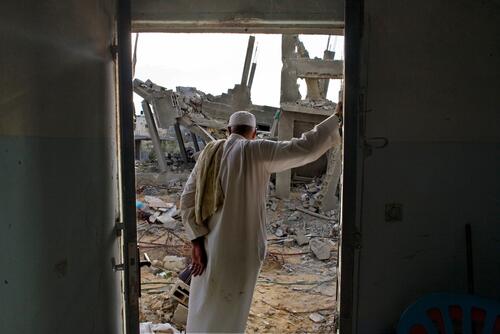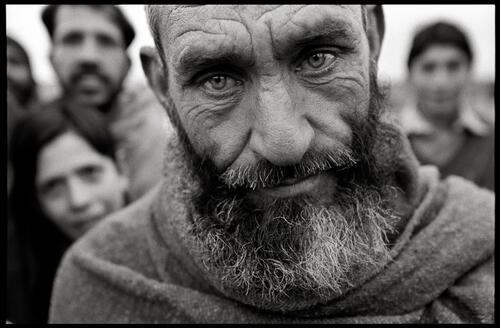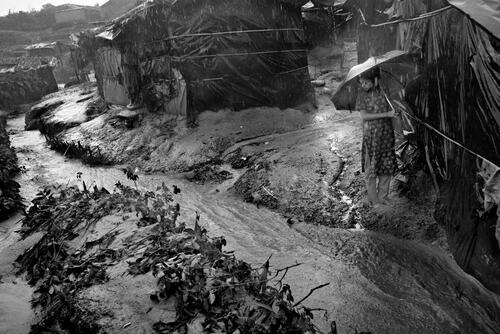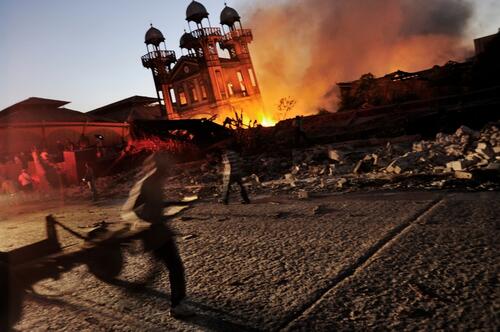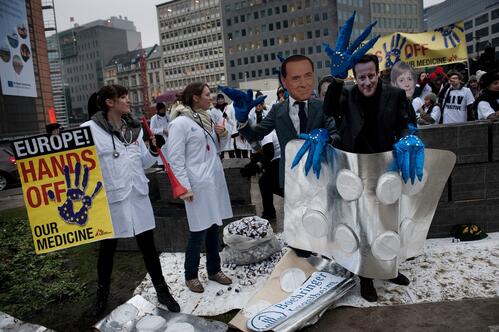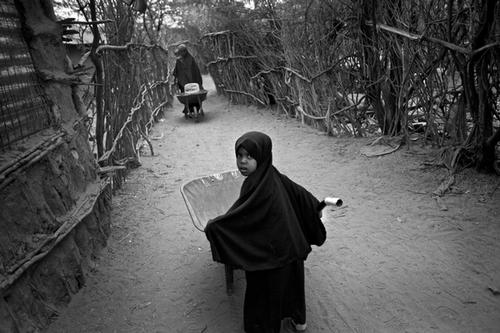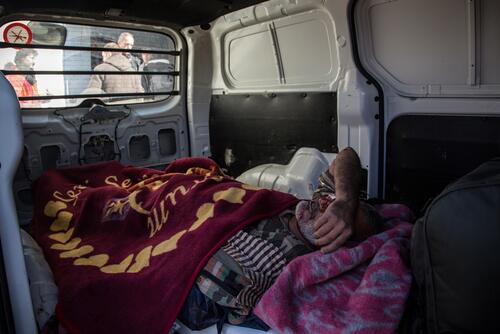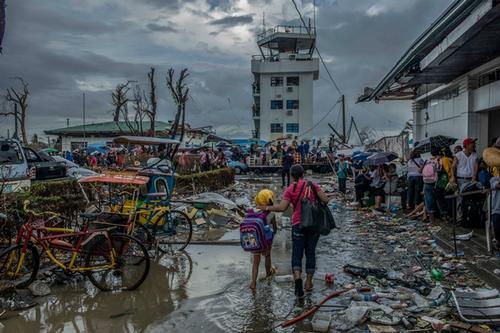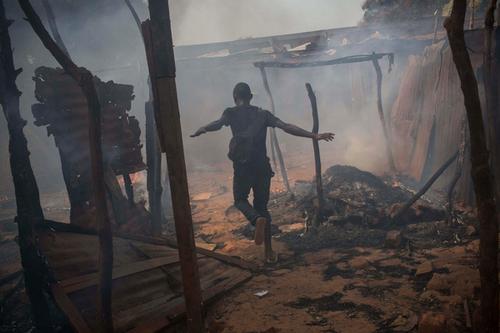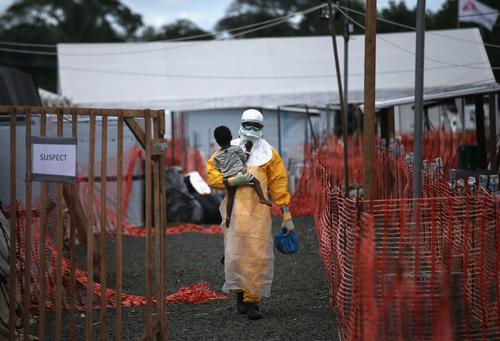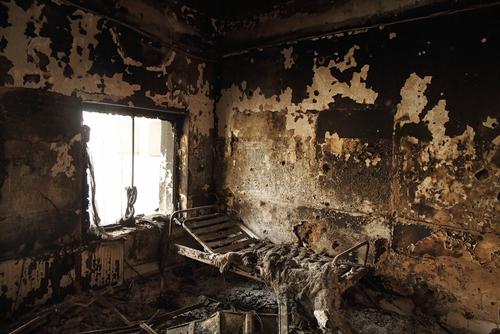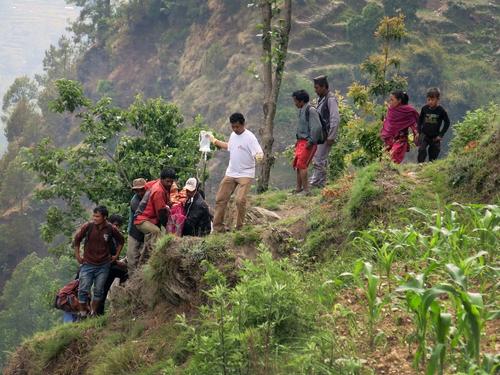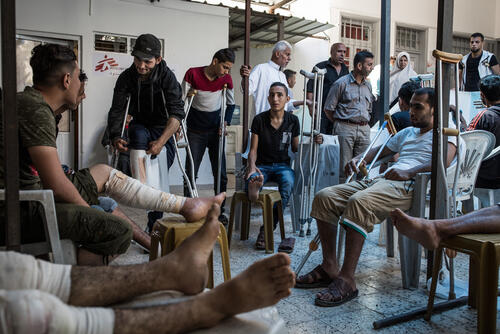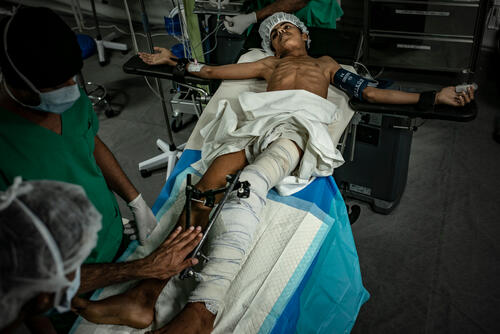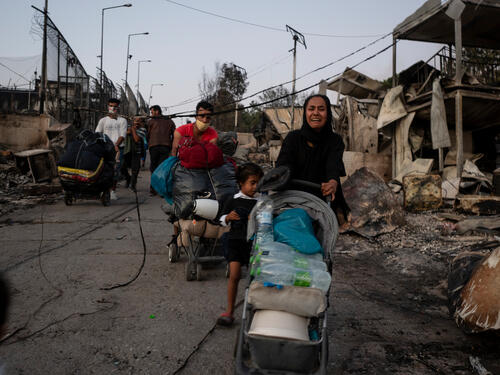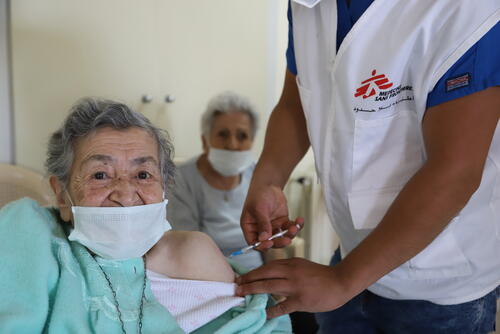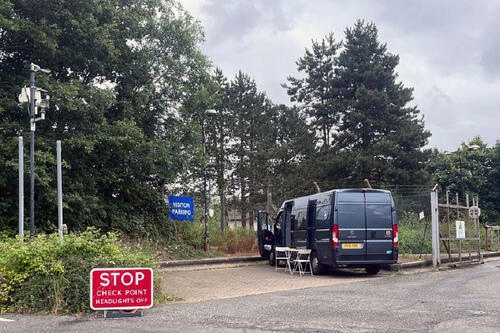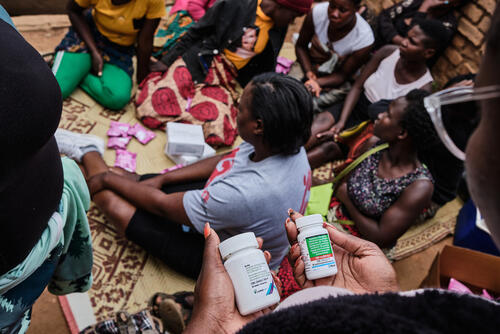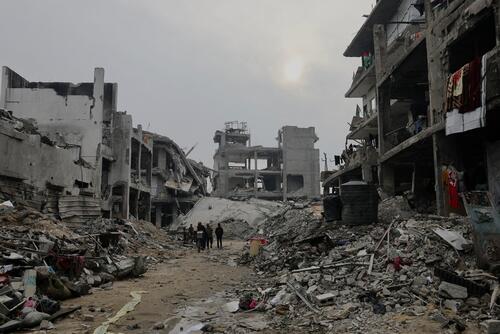It’s been 50 years since Médecins Sans Frontières (MSF) was started by an intrepid group of French doctors and journalists. Three hundred volunteers made up MSF when we started in 1971; half a century later in 2021, there are nearly 65,000 of us.
A lot has changed in 50 years. What has changed are the contexts. We see people living in poverty; we see communities excluded in places where we would never have imagined that MSF would have to work one day.
Also, we know that we don’t enjoy acceptance from all parts of society, as we might have done in the past. When we try to save lives on the Mediterranean Sea, we are penalised and accused of helping people-smugglers. Several times this basic human act, of helping others, has been criminalised and we have even been attacked.
What hasn’t changed since those first days... is that medical action comes first, which aims to alleviate the suffering of people.Dr Christos Christou, MSF International President
What hasn’t changed since those first days is that we stand in solidarity with our patients. That medical action comes first, which aim to alleviate the suffering of those people who are most excluded from accessing medical care.
What makes us quite different from other organisations has always been our commitment to bearing witness and speaking out. It means we must have a sharp voice and political positioning, which may sometimes be best expressed by not talking at all. We also do advocacy at bilateral levels, where we meet people behind closed doors.
We know that our decisions come with political and financial costs. Our compass, however, still (and always will) guides us towards the needs of patients and how can we meet them. These are challenges we didn’t have 20 or 30 years ago. This is the reality of today.
- Dr Christos Christou, MSF International President
How it started: 22 December 1971
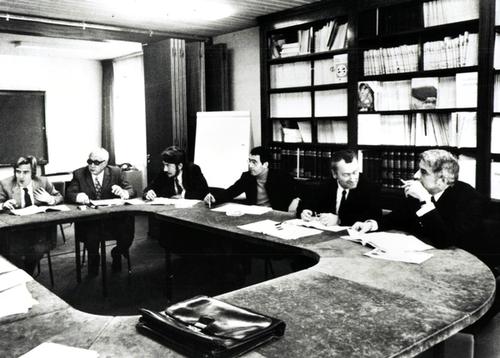
It’s simple really: go where the patients are... At the time it was a revolutionary concept because borders got in the way. It’s no coincidence that we called it ‘Médecins Sans Frontières’.Bernard Kouchner, MSF co-founder
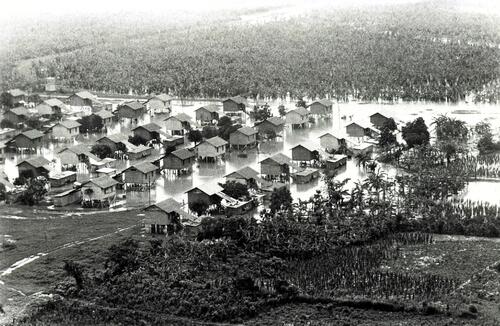
The first decade: 1972 - 1981
MSF is officially created on 22 December 1971, made up of 300 volunteers: doctors, nurses and other staff, including the 13 founding doctors and journalists.
Our first mission is in Nicaragua, offering medical support after a devastating earthquake kills between 10,000 to 30,000 people. Our teams then go on to set-up a relief mission to help people in Honduras, after Hurricane Fifi causes major flooding and kills thousands of people.
In 1975 we set-up our first large-scale medical programme during a refugee crisis – providing medical care for Cambodians seeking sanctuary from Pol Pot’s oppressive rule. As war breaks out and ravages Lebanon, we also provide lifesaving care for war-wounded people in the conflict.
We are here to demand protection for these civilians, these unarmed people.Claude Malhuret, president of MSF, during the March for Survival of Cambodia, 1980
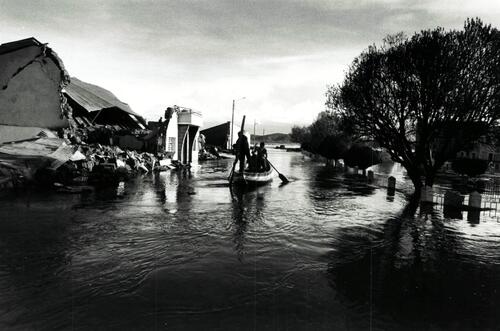
The second decade: 1982 - 1991
Our medical activities continue to grow in the Eighties, as we initiate a medical response to the famine in Ethiopia, where we actively speak out against the government who forcibly displace people and divert humanitarian aid. As a result, some of our teams are expelled from the country.
We provide a large-scale response after an earthquake in Armenia in 1988 kills more than 50,000 people and leaves hundreds of thousands injured. We also begin medical activities in Afghanistan, Ivory Coast, Liberia and beyond.
If nothing changes, I don’t know what we’re doing here. Without food, medical treatment is meaningless.Brigitte Vasset, MSF medical coordinator in Ethiopia, 1984
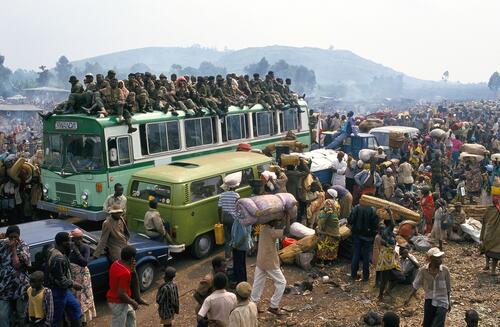
The third decade: 1992 - 2001
As wars across the globe continue to wreak havoc on people’s lives, our teams respond to needs on numerous fronts. During the civil war in Yugoslavia, we provide healthcare and denounce the massacre of 8,000 civilians in Srebrenica, at the hands of Serbian troops.
We are also present during the genocide of 800,000 Tutsis and moderate Hutus in the Rwandan civil war, where we provide emergency medical care where we can. Powerless to the horrors we witness, we take an unprecedented decision on 18 June 1994, and request an international military intervention – “Doctors cannot stop a genocide".
In 1999 we are awarded the Nobel Peace Prize. The judges choose MSF “in recognition of the organisation’s pioneering humanitarian work on several continents”. The proceeds from MSF’s Nobel Peace prize award are used to set up The Access Campaign, designed to to break down policy, legal, and political barriers that block access to medicines for patients in our projects and beyond.
The only decent position was to break completely with humanitarian neutrality and call for military intervention against the perpetrators of the genocide.Jean-Hervé Bradol, MSF project coordinator in Rwanda, 1994
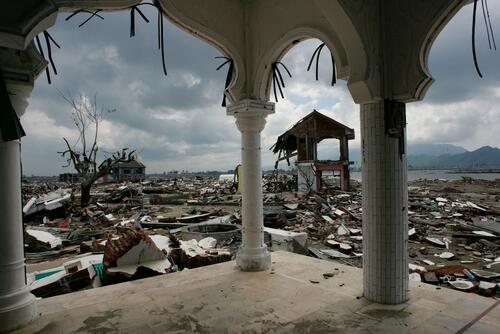
The fourth decade: 2002 - 2011
In the early noughties, our teams start treating people living with HIV with antiretroviral therapy in seven countries. Our teams also continue to tackle the deadly effects of malaria across Africa, while continuing to provide healthcare and medicine during a famine in Angola.
In 2002, we begin working in Italy, providing medical care to people crossing the Mediterranean to Europe in Lampedusa reception centre. Meanwhile we provide medical care for those affected by war and conflict, namely in Iraq, Afghanistan and Sri Lanka. In addition, our teams are some of the first responders after the Tsunami in South-East Asia and the deadly earthquake in Haiti in 2010.
Stop these attacks. We will not leave patients behind. And we will not be silent. Seeking or providing healthcare must not be a death sentence.Dr Joanne Liu to the United Nations Security Council
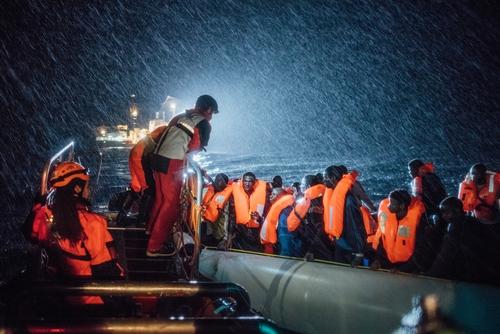
The fifth decade: 2012 - 2021
As the Arab Spring erupts across the Middle East and North Africa, our teams respond to multiple conflicts, particularly in Syria, Yemen and Iraq, where we work throughout the decade, providing emergency and specialised care.
This decade also sees our teams fighting against deadly disease outbreaks and epidemics across the world such as measles and cholera. Between 2014-2016 in West Africa, we lead the response to the largest Ebola epidemic in history, where the disease infects more than 25,000 people and claims more than 11,000 lives.
With the outbreak of the COVID-19 pandemic, we mobilise teams across the world, including Europe, leading us to work in more than 80 countries at the peak of 2020.



